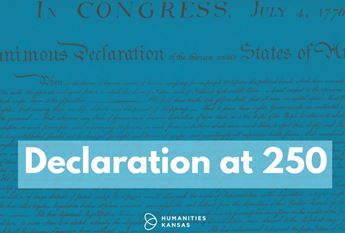

Big Idea: The Harm of Identity as Commodity
November 3, 2023
Sheena Hernandez is a professor of English at Garden City Community College.
I am a bit of an anomaly. I can count on one hand (and have fingers left over) the number of Black English professors I have met at state conferences. We tend to get very excited when we see each other, waving from across the room and making sure to introduce ourselves between the multiple sessions, never to see each other again. It’s like spotting a unicorn; it’s magical. After our brief meeting, I always wonder if their experience is like mine—did they grow up loving books as I did? Do they also get the same rush talking with their colleagues about literature? Do they feel like a fraud too?
This feeling continues in everyday conversation. When I tell someone I teach English Literature, I get a similar reaction: surprise and a little confusion. I get the feeling that they wonder why someone like me is teaching the subject; maybe they can’t recall many books that remind them of people like me. I can’t blame them; neither can I. My courses were interesting, and I (mostly) enjoyed the books I’ve read. They hold value to me and the greater social dialogue. Yet, I also feel like I have spent my college and professional careers participating in and justifying an absurdly monochromatic canon.
How did we get here, where a Black girl who loves to read grows into an English professor with imposter syndrome? The answer is a common recipe. Literature is art; it is also business. The business of publishing works toward mass consumption, and the majority in the United States is of European descent. Add in an unhealthy dose of systematic racism and more than a pinch of cultural appropriation and it becomes a formula for the accepted negation of minority voices. Most of the people who work in these publishing houses, especially the larger ones, and most authors who are published are white. We must ask ourselves if is it ethical for these authors and publishers to make money from minority stories without adequately allowing for the minority voices that could?
Some argue that in an industry that relies on imagination, it does not matter; silencing writers is censorship. However, there is a difference between respectful engagement and cultural appropriation. Cultural appropriation involves the seizure of identity itself. When a person who identifies with and enjoys the benefits of the majority successfully assumes the style or voice of a minority group to their (and their publishing house’s) financial gain, this is blatant erasure.
To those who say, “it’s not like it was,” times haven’t changed that much. In recent years, Jeanine Cummins’ American Dirt was published by Penguin and endorsed by Oprah Winfrey’s Book Club. Controversy erupted one week before the book’s release, not necessarily because of the content, but because of the author’s identity. Should Cummins, who identifies as white, write a story about a Mexican mother and her son fleeing cartel violence and immigrating illegally to the United States? Many Latinx authors asserted that it was inappropriate for Cummins to reap these benefits while writers like them—including those with lived experience—rarely enjoy the benefits of the publishing world’s marketing machine. Cummins herself wrote in her author’s note that she wished someone “slightly browner” would have written the book. Her own statement disregards authors who have written about this topic from a more authentic view, such as Luis Alberto Urrea and Javier Zamora, among many, many others.
Stories like Cummins and American Dirt as well as viral discussions like #publishingpaidme, where authors speak honestly about their publishing advances, underscores how minority authorship is devalued. Publishing practices are stagnant, and minority voices remain sidelined in favor of trend and profit. Change is possible, however, if we are mindful in what books we purchase. We do not have to stop reading popular or well-known works, but we owe it to ourselves to seek out alternative voices. They may not always have the full backing of industrial powerhouses, but we can see them, waving excitedly at us from across the room. We need to go over and have a conversation.
Register for the Big Idea with Sheena Hernandez on November 10 at Noon CT.
Spark a Conversation
- READ books by authors writing the lived experience:
-
Children of the Land by Marcelo Hernandez Castillo.
-
Fruit of the Drunken Tree by Ingrid Rojas Contreras
-
In The Country We Love: My Family Divided by Diane Guerrero
-
Antonio's Gun and Delfino's Dream: True Tales of Mexican Migration by Sam Quinones
-
The House of Broken Angels by Luis Alberto Urrea
-
-
READ "Just How White is the Book Industry?" by Richard Jean So and Gus Wezerek.



